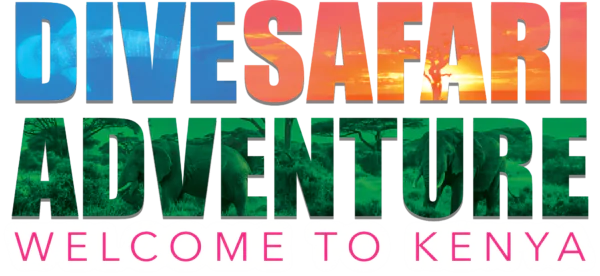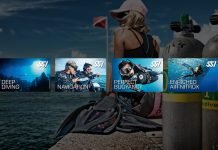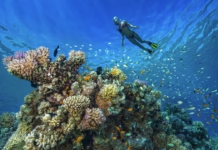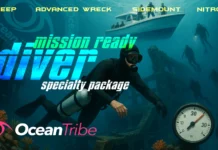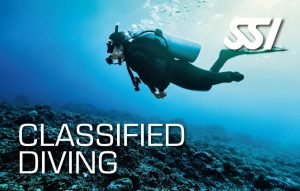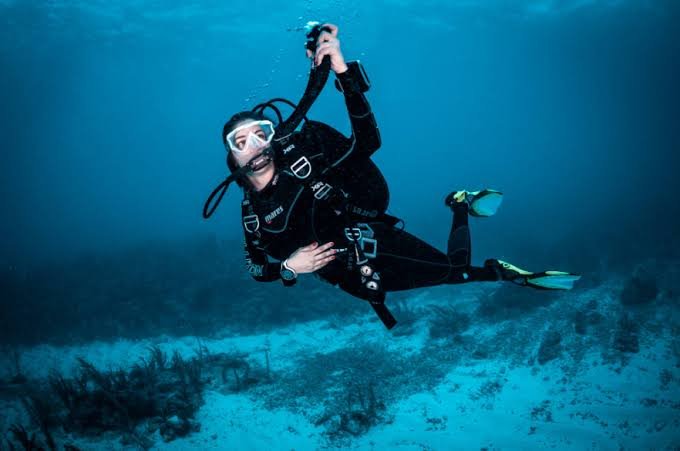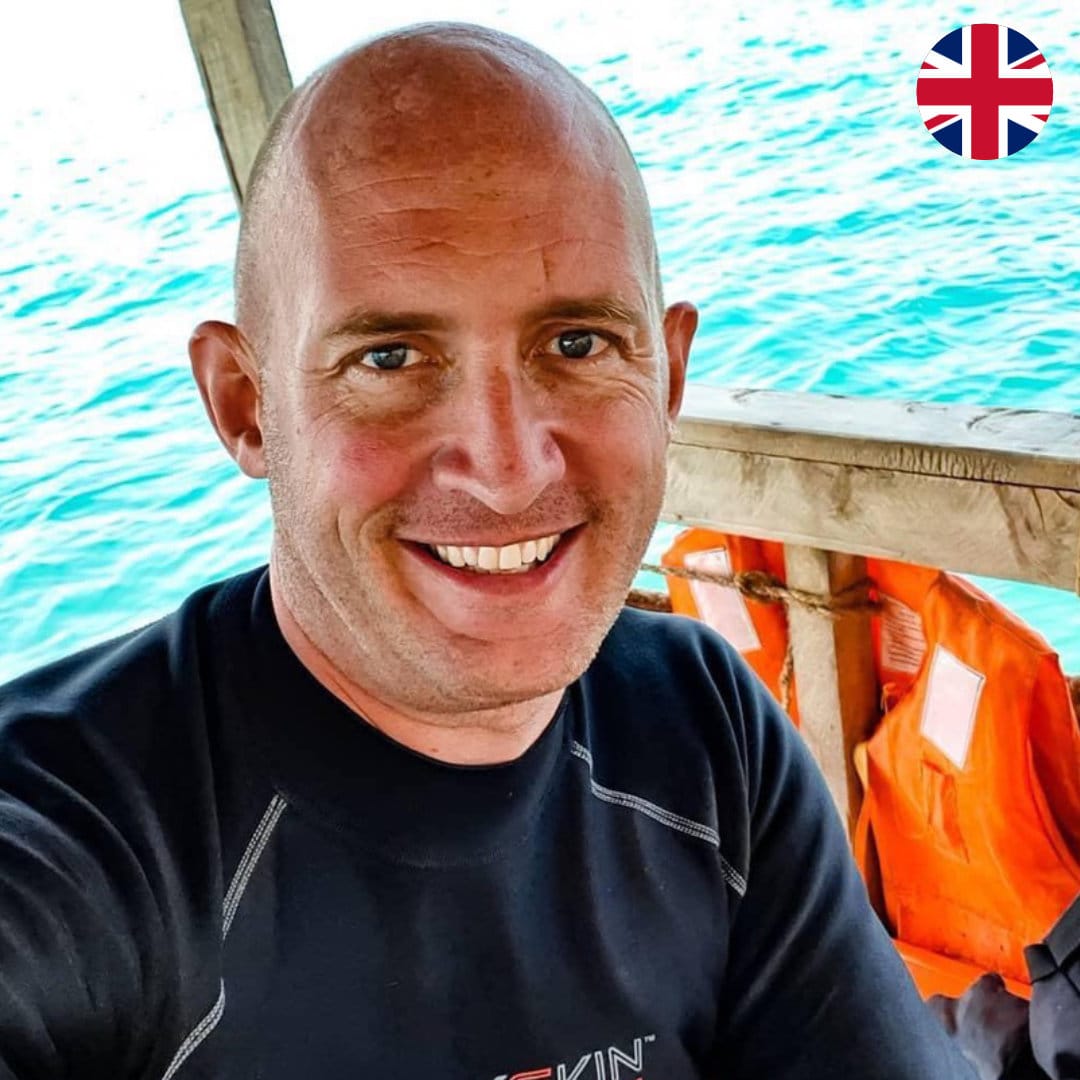Real-World Divemaster Training at Ocean Tribe, Kenya
Becoming a Divemaster is about more than ticking boxes in a training manual. It’s about stepping up to a leadership role in the dive industry. But what extra skills do you need as a Divemaster? At Ocean Tribe in Diani Beach, Kenya, our Divemaster course goes beyond the minimum agency requirements. We prepare you with essential real-world skills that make you employable and confident in any dive centre worldwide.
Success in this role isn’t just about knowledge. It’s about attitude. The most accomplished Divemasters show initiative, attention to detail, and a constant desire to learn. Treat your Divemaster training like higher education. The more you put in, the more you’ll get out.
Practical Dive Centre Skills You Need as a Divemaster
Understand Cylinder Markings and Working Pressures
We teach you how to read tank labels, manufacturing dates, working pressure ratings, and service intervals. Knowing how to inspect a tank before filling or diving with it is essential for safety and professionalism.
Learn to Fill Air and Nitrox Tanks
You’ll get hands-on experience with the compressor system, learning to safely fill cylinders with air.
Use Dive Centre Booking Systems
Ocean Tribe uses Geek Divers and Roverd to handle and manage bookings. You’ll learn how to take reservations, confirm bookings, and manage guest schedules efficiently.
Process Payments and Transactions
We show you how to handle card payments, mobile money, and dive package invoicing. It’s important to be trusted at the front desk as well as underwater.
Troubleshoot and Repair Equipment Issues
You’ll learn how to diagnose common regulator and tank valve problems like free flows and leaks. Simple fixes can save dives and impress guests with your quick thinking.
Replace Regulator Mouthpieces
Broken or bitten-through mouthpieces are common. You’ll practice removing the old one, fitting a new one, and securing it with a cable tie—all within minutes.
Service LPI Assemblies
Low-Pressure Inflators sometimes stick or leak. We’ll teach you how to disassemble, clean, and reassemble them so your guests never miss a dive due to gear failure.
Assemble and Use an Emergency Oxygen Kit
Every Divemaster should know how to deliver emergency O₂. You’ll learn how to assemble the kit, operate the regulator, and administer oxygen correctly in case of incidents.
Know Dive Computer Programming
Whether it’s Suunto, Mares, Cressi, or Aqualung, every rental computer is slightly different. We’ll train you on how to explain modes, reset dives, and troubleshoot basic issues.
Change Yoke and DIN O-Rings
A missing or damaged O-ring can cancel a dive. You’ll learn to identify worn O-rings and replace them on both yoke and DIN systems without needing tools.
Maintain Your Own Dive Gear
Ownership isn’t enough—you need to understand how to care for your equipment. We’ll show you how to rinse, inspect, store, and maintain your kit like a pro.
Look After Dive Centre Equipment
You’re responsible for the safety and function of rental gear. You’ll develop routines for post-dive cleaning, storage, and equipment rotation.
Guest Service and Communication Skills You Need as a Divemaster
Give Clear, Friendly Information to Guests
We train you to answer questions over the phone or face-to-face in a professional and approachable manner. Guests trust you—your clarity builds their confidence.
Understand Local Weather and Tides
You’ll track how tides and wind affect local dive conditions and boat operations. You’ll also learn how to forecast whether a dive site will be safe and fun—or should be avoided.
Be Knowledgeable About Retail Gear
If your dive centre sells masks, fins, and wetsuits, you’ll learn how to explain the features of each product and help guests choose wisely.
Communicate Dive Plans Like a Pro
We’ll teach you how to structure a proper dive briefing—from entry to exit, max depth, air limits, buddy system, and marine life. You’ll also get coaching on delivery style and clarity.
Provide Accurate Weighting Advice
Over-weighting guests can ruin dives. You’ll practice giving weight estimates based on body type, wetsuit thickness, and tank size, refining this vital skill over time.
Explain Rental Gear Clearly
Guests need to know how their BCD works, how to use their dive computer, and how to adjust their mask. You’ll become fluent in gear orientation.
Describe Dive Conditions Simply and Honestly
You’ll learn to provide real-time updates on visibility, currents, thermoclines, and marine life sightings so guests can prepare accordingly.
Follow Industry News and Trends
We encourage you to stay up-to-date with dive magazines, blogs, gear updates, and conservation efforts. Being informed helps you engage better with both guests and staff.
Know Global Dive Destinations
When guests ask about diving in Maldives, Indonesia, or the Red Sea, it helps to have a knowledgeable answer. We encourage curiosity and research.
Recommend Gear Based on Guest Goals
If someone wants to do deep dives or pursue underwater photography, your advice should reflect their goals. We train you to offer tailored recommendations.
Understand Your Dive Centre’s Brand
Every dive shop has a voice, tone, and personality. We help you understand Ocean Tribe’s brand so you reflect our values in everything you say and do.
Start Your Dive Career with the Right Skills
At Ocean Tribe, we don’t believe in doing the bare minimum. Our Divemaster course prepares you for real challenges, both underwater and above. Whether you want to work in Kenya, Southeast Asia, the Caribbean, or beyond, these extra skills give you the edge.
Ready to become a professional?
Train as a Divemaster in Diani Beach, Kenya with Ocean Tribe. Email us at info@oceantribe.co or WhatsApp us to get started.

